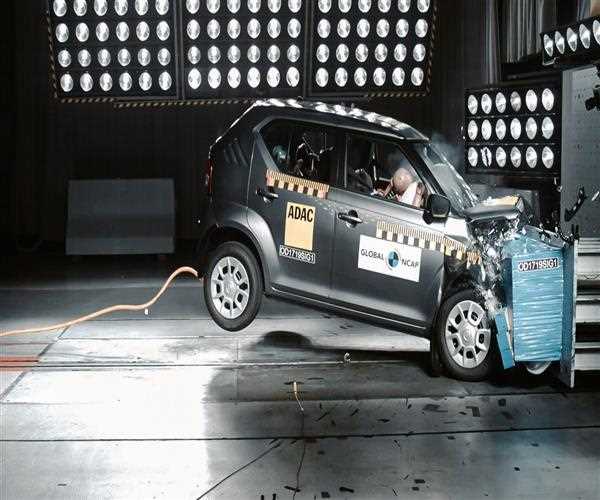Maruti cars, manufactured by Maruti Suzuki India Limited, are one of the most popular car brands in India. The safety of any car, including Maruti cars, depends on various factors, such as design, build quality, safety features, and adherence to safety standards. While Maruti cars have a significant market presence and offer a range of models, it is important to evaluate their safety performance based on available information.

Maruti Suzuki has made efforts to prioritize safety in its vehicles. Over the years, they have introduced safety features like airbags, anti-lock braking systems (ABS), seatbelt reminders, and reinforced structures in their car models. Many of their models have undergone crash tests conducted by Global NCAP (New Car Assessment Program), an independent vehicle safety organization. These tests evaluate the vehicle's structural integrity and occupant protection during simulated crash scenarios.
In recent crash tests conducted by Global NCAP, certain Maruti car models have received mixed safety ratings. Some models have shown improvements in safety, while others have highlighted areas of concern. For instance, the Maruti Suzuki Swift, one of their popular models, achieved a 2-star rating in the Global NCAP crash test. This rating indicates a low level of safety performance compared to higher-rated vehicles available in the market.
It is worth noting that safety standards and regulations have evolved over time, and newer models often incorporate enhanced safety features compared to older ones. Therefore, it is essential for consumers to consider the specific model and its manufacturing year when assessing safety.
In terms of compliance with safety regulations, Maruti Suzuki has adhered to the mandatory safety norms prescribed by the Indian government. They have complied with regulations related to frontal crash protection, pedestrian safety, and emission standards. Additionally, Maruti Suzuki has been proactive in implementing safety-related campaigns and initiatives to raise awareness among customers and promote responsible driving practices.
However, it is important to recognize that no car can be deemed entirely "unsafe" or "safe" based solely on the brand name. Safety is a multi-faceted aspect that depends on various factors, including the individual's driving behaviour, road conditions, and adherence to traffic rules.
To make an informed decision, prospective car buyers should consider several aspects related to safety. This includes researching the safety features available in a particular model, assessing crash test ratings and safety evaluations by independent organizations, and seeking information about the manufacturer's commitment to safety.
It is also advisable for consumers to consult professional automotive reviews, compare safety features across different car brands and models, and prioritize personal preferences and requirements when making a purchasing decision.